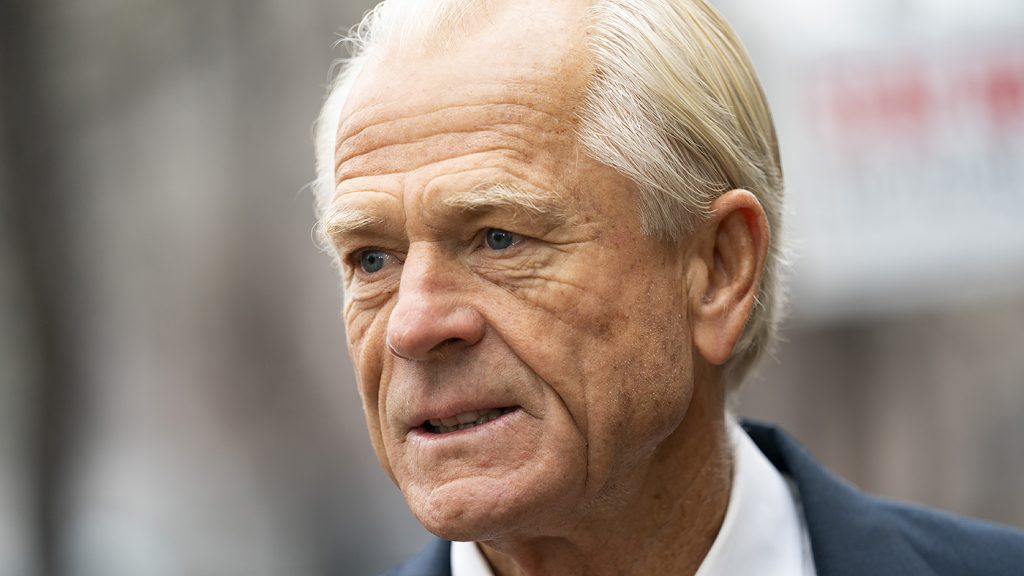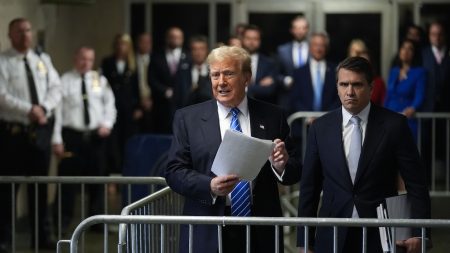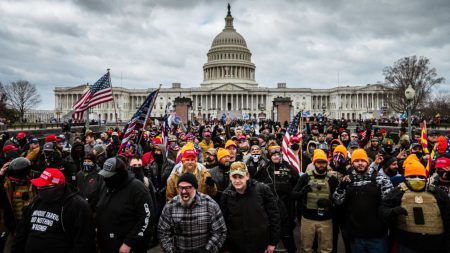Former Trump White House adviser Peter Navarro has to go to prison on Tuesday because Chief Justice John Roberts denied his final attempt to stay out of prison while waiting for his appeal of his contempt of Congress conviction.
Roberts announced on Monday that he will not stop Navarro's four-month prison sentence while his appeal is ongoing.
Navarro has been told to go to a Miami prison on Tuesday afternoon to start his sentence, making him the first important adviser to former President Trump to be imprisoned for trying to overturn the 2020 election.
“This request only deals with whether Peter Navarro has proven that he deserves relief under the Bail Reform Act,” Roberts wrote, referring to a court's decision that Navarro gave up any argument contesting the district court's finding that Trump did not invoke executive privilege.
“I don't see any reason to disagree with the finding that Navarro gave up those arguments in the release process, which is different from his appeal on the merits.”
Roberts considered Navarro's attempt to avoid prison because he handles urgent matters from the D.C. Circuit Court of Appeals.
Although it's just one paragraph, this is the first time in ten years that Roberts has published an “in-chambers” opinion, a written explanation for his decision on a case that he didn't refer to the full court for consideration.
Navarro, 74, was found guilty last year of two charges for refusing to cooperate with a congressional investigation into the January 6, 2021, attack on the Capitol — one for not producing documents related to the investigation and another for missing his deposition.
U.S. District Judge Amit Mehta prevented Navarro from using executive privilege as part of his defense after determining that he failed to prove that privilege was ever invoked by Trump.
The judge refused to allow Navarro to stay out of prison while appealing, arguing that his appeal does not raise a “significant legal question” and therefore does not justify his release.
Defense lawyers claimed that Mehta’s decision “crippled” their defense, and during his sentencing, Navarro told the judge that he honestly believed that executive privilege had been invoked.
In their plea to the Supreme Court to delay Navarro’s imprisonment, Navarro’s lawyers argued that executive privilege should have shielded the former Trump economic adviser from being charged for avoiding the House Jan. 6 committee’s investigation.
“For the first time in our country’s history, a senior presidential advisor has been convicted of contempt of congress after asserting executive privilege over a congressional subpoena,” Navarro’s lawyers wrote.
“Dr. Navarro has appealed and will bring up several issues on appeal that he believes are likely to lead to the reversal of his conviction, or a new trial,” they continued. “The most important ones are whether an ‘affirmative’ invocation of executive privilege was required to prevent a prosecution for contempt of congress; what former President Trump needed to do for a ‘proper’ invocation of privilege.”
Although Navarro might be the first Trump White House official to be imprisoned for avoiding Congress, he was not the first to be found guilty of the charge.
Former White House advisor Steve Bannon was also found guilty of two counts of contempt of Congress last year and was given a four-month prison sentence. However, a different judge allowed him to remain free while he appeals. Bannon presented his case to a federal appeals court in November and has not yet served any time.
Updated at 5:48 p.m.









